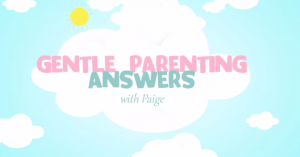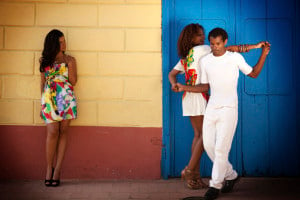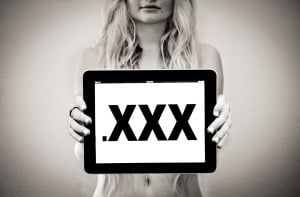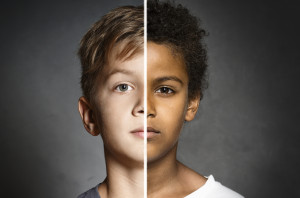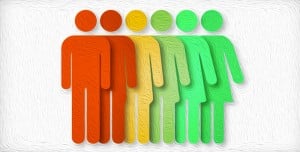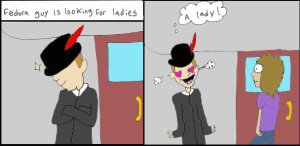When I say I am enraged with the police, I mean that I am livid.
Livid with the entirety of my being. Livid enough to want to commit my very existence to the complete eradication of the police force, the white supremacist platform on which they stand, the legacies of slavery and Jim Crow laws from which they emerged, the systems of privilege and oppression that they protect, and the sympathy and support they get from other Americans as they pursue their murderous endeavors.
And I am not alone – so many other Black and Black-allied people in the US are just as angry.
In fact, in 1951, Queer Black Poet Langston Hughes wrote a poem called “Harlem,” in which he asked, “What Happens to a Dream Deferred?”
The dream he discusses is the liberation, equality, and well-being of Black people in the United States of America. And, so powerfully, he answers that question with a series of questions: Do those dreams dry up, do they stink, do they fester like a sore, do they crust and sugar over, do they sag like a heavy load?
Or do they explode?
In the face of extreme systemic exclusion, police brutality, economic oppression, media assault, and out right racial hostility, Black America is exploding.
Most times, despite what the media and your racist Facebook friends will report, those explosions look like “peaceful” protests; powerful, organized moments of solidarity and congregation; and amazing moments of intellectual and artistic brilliance. On other, very valid and righteous occasions, it looks like self-defense, like fighting back – like rioting, even.
If you spent your entire life experiencing extensive marginalization, watching your family members being kidnapped and murdered by police forces, and having an embodied and intellectual awareness of the fact that this sort of violence and oppression has been the plight of your people since they were first captured from their homeland, shackled to each other on death boats across the Atlantic Ocean, and forced into slavery for hundreds of years, wouldn’t you be angry?
Wouldn’t you want to fight back?
Wouldn’t you explode?
Hopefully, like the residents and activists who are congregating, protesting, and exploding in Ferguson and Baltimore, your answer is yes.
And if it is, that’s okay. I would go so far as to say it’s absolutely necessary.
When you are an oppressed person, rage is a sign of dignity, of self-worth, of self- and community-love even. It is rooted in a desire to survive and transcend. It is hungry to live without incessant threats of state, media, economic, and interpersonal violence.
And those feelings and desires are valid.
What is not valid, however, is the motivation behind our rage being insulted by people so addicted to their privilege and their bias that they cannot take the time to ask compassionate questions, much less attempt to sympathize with our perspective.
What is not valid is the manifestation of our rage being contorted, manipulated, and appropriated to validate America’s fear, and consequent degradation, of Black people.
But first, let me be clear: I am not enraged with the specific individuals who make up the police force.
I am no more angry with police officers – who, by the way, have killed 255 Black people (of 392 murders all together) so far in 2015 – than I am with obstetrician gynecologists (the mortality rate for Black infants is 2.4 times higher than that of white infants), oncologists (white women have the highest diagnoses of female cancer, but Black women have the highest death rates), or even teachers (Black students are three times as likely to be suspended as white students).
Because – no shade – these people are tools of white supremacy. Directing my rage at the tools is pointless and divisive.
I am angry at the hand controlling the tool.
Our complacency with those violent institutions – like the police force – is the problem.
Our fear of fighting back is the problem. Our determination to participate and assimilate is the problem. Our neutrality is the problem. Our ignorance is the problem. Our victim blaming is the problem. Our white supremacist, patriarchal socialization is the problem.
But we are not the problem..
We have the ability to shift our hearts, minds, spirits, and behaviors. We can change the way we vote, spend money, and respond to information. And with that, we can change the system.
That’s why I’m writing this article: I desperately need to believe that the more we understand the violent, oppressive, anti-Black racist legacy of this country – the one that we perpetually create and vote for new laws to sustain and then hire new police officers to enforce – the more we will all question, disrupt, protest, and do everything we possibly can to eradicate every single violent and murderous component of its system.
So the next time you, whoever you are, feel the need to express sympathy for the police, to validate their brutality against Black people, to castigate Black people and others for their rage against the police, or to criminalize Black anti-police protestors, I need you to take into consideration the following four historical and contemporary truths about the police, the criminalization of Black people in America, and our subsequent rage.
1. The Police Were Tools Used to Protect the Institution of Slavery
During the period when chattel slavery was blatantly and technically legal in the United States, poor white men were hired to enforce pro-slavery/anti-black laws – such as slave fugitive laws.
For centuries, they were paid to search for, capture, and re-enslave Black people – legally recognized as the sub-human property of whatever wealthy White person owned them – who managed to escape slavery. And since most of America’s money came from slave plantations, they were also protecting our nation’s wealth.
Many might suggest that these folks were not police officers because that was not their titles, but language and positions change as years pass (consider how, for most of the 19th and 20th century, the Republican Party was more progressive than Democrats – not that that means much).
Similar to how a police officer’s job is to enforce laws and protect the peace, a fugitive slave catcher’s job was to enforce the laws of slavery and to protect the peace of wealthy white land/slave owners.
These people were also hired to suppress slave rebellions – which translates to capturing and killing Black people who tried to liberate themselves from the atrocity of being someone else’s property.
And in case y’all forgot, being enslaved in America meant working 10-14 hour days; being beat, mutilated, or killed for not obeying your “owner” or “overseer”; being raped to breed more enslaved people; being sold (or your children/partner being sold) at someone else’s whim; and having absolutely no personal rights – from birth to death.
2. The Police Were Used to Enforce Black Code/Vagrancy/Jim Crow Laws
After slavery technically ended, the United States (and especially the South) lost its most significant force of labor – free labor – and hence, its wealth.
The poor white folk that previously made their income by overseeing slave plantations or kidnapping Black people attempting to escape also lost their employment, and those who didn’t took major pay cuts.
Umm, white supremacy was not happy.
So immediately after slavery “ended,” Southern States passed Black Code Laws, which – depending on the state – made it illegal for Black people to purchase or own property, testify against white people in court, own their own businesses, be out after curfew hours, travel from one place to another without written permission from a white person, or—you know—make a white person upset in any way, form, or fashion.
And once Black people “broke” those “laws,” they were arrested by the police, taken to court, usually seen without a jury, and sentenced guilty.
And because many folks didn’t have money to pay court fines, the court would then lease them to corporations and local governments, where they did highly dangerous labor (like mining) or work-farms/chain-gains, usually until they died.
Translation: Black folks were arrested for breaking bullshit laws that only they were required to adhere to, and then sold to governments and private corporations as labor.
This went on in some states on through World War II.
And y’all thought slavery ended in 1865.
3. The Police Are Still Used to Enforce Racist, Anti-Black Laws
Those racist laws that only attack Black people never ended.
They simply expanded to be somewhat inclusive of other people of color (not to exclude the massive waves of colonial violence and attempted genocide that targeted Native People the moment Europeans began settling this land – all of whom have also had their own unique and horrible experiences with white supremacy).
And hence, the war on drugs.
In its initial incarnation, drug criminalization became a tool of systemic oppression to validate extremely racialized, xenophobic violence. They used opium-fear to promote anti-Chinese hostility, eventually leading to the Chinese Exclusion Act – which happened a few years before the dawn of the Great Depression. Note: This is yet another correlation between loss of white American dollars and the vilification of racially marginalized people.
Also during the Great Depression, police officers from Texas to California began reporting on something called the Mexican Menace – also known as marijuana.
Supposedly, and to the surprise of every pothead who has ever existed, marijuana causes people to commit violent crimes, like shooting the police. What a perfect excuse to incite mass fear and hatred of Chicanx and Latinx people – and to validate the horrific police and military violence targeting that group during that time (and still today).
Now, you might be wondering what this has to do with Black folk.
Forty-ish years later, Richard Nixon formally initiated the War On Drugs.
And under the leadership of Ronald Reagan, that war took our non-violent/drug related prison population from about 50,000 people in 1980 to 400,000 in 1997.
By 2013, 37% of men in prison were Black – the highest percentage by ethnicity. That same year, we were only 13.2% of the nations population.
This led to the development of the prison industrial complex, growing revenue for private corporations and state governments, while relying on America’s pre-established and irrational terror of Black people and of non-dangerous drugs (like marijuana) to validate arresting an unprecedented amount of our people.
But further, politicians were also able to lie and blame economic woes on feeding and housing “drug addicted, Black criminals,” and victim-blame Black people who were murdered in the crossfire.
And FYI, marijuana, the same drug that validated so many arrests and murders of Black and Brown people (as in, 80% of the increase in drug-related arrests from the 1990s were due to marijuana possession), is now, literally, recognized as a medicine and prescribed in 23 states.
The War on Drugs was purely contrived to get more rich white people in office and more people of color in prison captivity.
And America’s white supremacist legacy continues.
4. Police Presence and Surveillance Do Not Make Black Communities Safer
It was the War on Drugs that made police presence in our neighborhoods even more excessive.
While the quota system is supposedly illegal, it’s common knowledge that officers are encouraged (as in threatened) to make a minimum number of arrests – each day.
Because predominately Black, urban communities have more poverty – which often results in more instances of survival crime, like drug selling and purchasing, sex work and trafficking, and thievery – a higher presence of police officers are dispensed into those communities with the specific intention of targeting and arresting Black people.
These officers are rarely from the communities they patrol, and they’re more likely to utilize stereotyping and racial profiling to identify potential criminals. This means that all of us are potential criminals.
Consider what happened with New York’s Stop-and-Frisk policy.
In 2013, New York City had a population of 19,746,227 people – 17.5% were Black, and 57.2% of them were white. But of the 191,558 people stopped and frisked, 56% of them were Black and only 11% were white.
Literally, the determining factor in who gets stopped is whether someone looks criminal – and in this case, criminal is clearly Black. (FYI, 89% of the people they stopped were innocent.)
When I was growing up in the predominately Black and Latinx community of South Central, Los Angeles, my father, siblings, and I would play a little game called “How Many Times Will We Get Pulled Over When Daddy Picks Us Up from School This Week.”
And we were pulled over – nearly every week – for usually the same reason: a car that fits this description was reported stolen, or “there was a recent robbery and you match the description.”
Something about both these examples make police officers seem a lot like those fugitive slave catchers I talked about earlier.
Let’s make it clear: The police are not protecting our communities.
They do not keep us safe, nor are they invested in our safety. Not even police officers of color – white supremacy is state of mind and socio-political practice, not a skin color.
They are hired agents of the white supremacist nation that born and caused the violence for which Black people are scapegoated.
***
The police are occupying our neighborhoods and policing our existences. And beyond enraging, this is overwhelmingly terrifying.
They’re not just murdering individuals; they are not just arresting criminals.
They are perpetuating a legacy of genocidal slaughter, racial hierarchy, scapegoating, victim-blaming, and systemic oppression.
And I am ready to explode.
Aren’t you?
[do_widget id=”text-101″]
Vanessa Rochelle Lewis is the Senior Editor at Everyday Feminism. She is a queer, lush-bodied, Black, femme performance artist, writer, actress, educator, and Faerie Princess Mermaid Gangsta for the Revolution. She loves romantic songs, romantic films, romantic books, romantic conversations, romantic friendships, and writing long, vulnerable Facebook statuses (about romance). Speaking of Facebook, please add her here.
Search our 3000+ articles!
Read our articles about:
Our online racial justice training
Used by hundreds of universities, non-profits, and businesses.
Click to learn more






